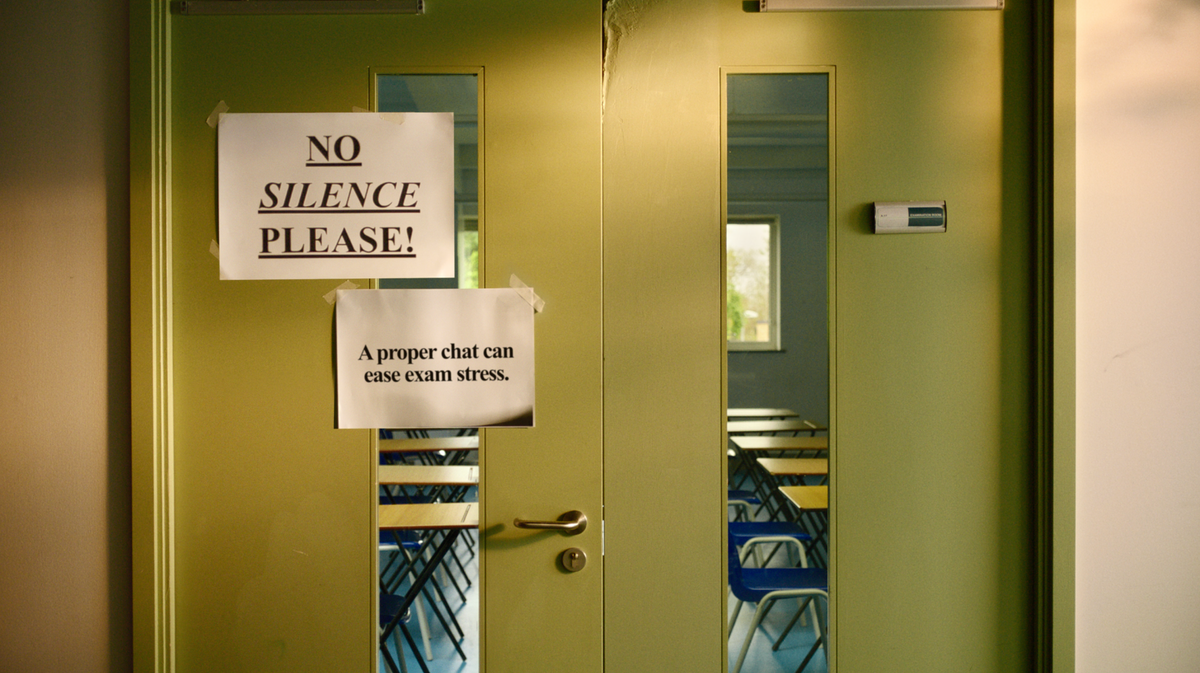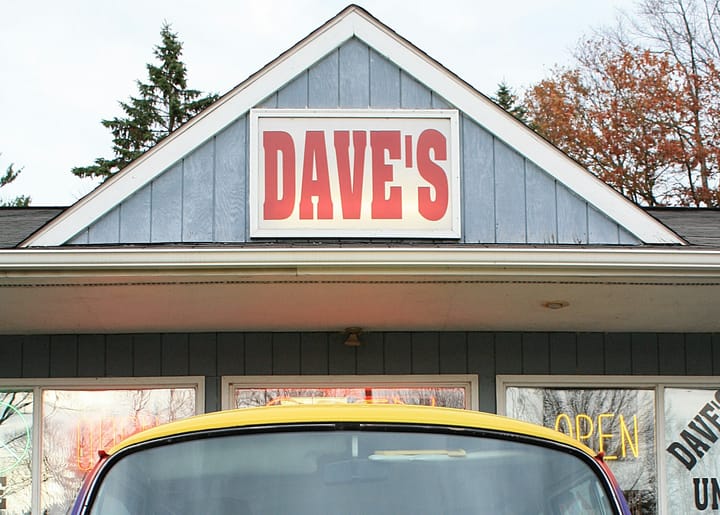No silence please when it comes to talking about mental health plus...5 more campaigns that flip the perspective.

Let’s face it, most advertising is safe and boring and doesn’t change consumer behaviour because it has been shaped around a familiar perspective that is easy to ignore. In contrast, campaigns that find a way to flip the perspective are unusual. They stand out. They're interesting (as Dave Trott would say). They earn our attention. Here are six examples that have flipped context, meanings, platform usage, and even algorithms to do just that. First up is this thoughtful campaign from ITV & STV.
No Silence Please | ITV | Uncommon Studio | 2023

Flip the familiar language exam phrase on its head to encourage families to talk about exam stress. ITV and STV are bringing back The Britain Get Talking mental health campaign to support young people facing stress during the upcoming exam season. A YouGov survey revealed that 72% of UK parents with children aged 14-18 expressed concern about their children's exam-related stress. The campaign, titled 'No Silence Please' and created by Uncommon Creative Studio aims to encourage open conversations between young people and their parents or carers, highlighting the power of communication in managing worries. The creative elements incorporate exam-related cues to evoke the intense emotions associated with exams. The campaign also includes radio edits mimicking language exams and an ITV promo emphasizing the importance of talking about feelings during exam season. Audiences are directed to the campaign website, itv.com/BritainGetTalking, for additional support in facilitating these conversations.
Unrecommended By The Algorithm | Fnac | Publicis Conseil | 2022
Flip recommendation algorithms by offering people the opposite of what their browsing history suggests they are likely to enjoy. Fnac, the French retailer of books, music, and electrical equipment, revealed that recommendation algorithms influence 80% of our media consumption. So, to challenge this dominance, they launched Unrecommended by the Algorithm. Developed by Publicis Conseil, Paris, the campaign matched individuals with books, CDs, and movies that contradicted their interests based on their ad server profile. Recommendations appeared on digital banners, a Twitter bot engaged with relevant tweets, and a dedicated microsite provided customized anti-recommendations. And by doing so, the retailer aligned with all those who champion cultural freedom and crave to escape the crushing age of algorithms!
Unsafety Check | Black Lives Matter | JWT | 2017

Flip the use of Facebook's Safety Check feature into a tool to mark Black Americans as unsafe to raise awareness of racial injustice. Black Lives Matter wanted to build awareness and foster empathy about how Black Americans felt. So they hacked Facebook’s popular ‘Safety Check’ feature which lets people declare themselves safe during emergencies. Instead, they created an app called the ‘Unsafety Check’ that allowed black people to mark themselves unsafe. The campaign exploded across social media. Yes, there’s lots of fancy tech but the idea is from the 1960s DDB playbook.
#BeatMe | UN Women | BBDO | 2016
Flip the perspective of women being beatable in Pakistan to show how strong they are. BBDO Pakistan collaborated with UN Women Pakistan to create #BeatMe – in the hope of mobilizing women and men to demand an end to violence against women. The campaign showcased a woman inviting men to beat her, but – and here’s the clever play on words - at things, she was good at; amazing feats women had achieved globally. Prominent women from Pakistan, including a singer, a mountain climber, a chess champion, as well as athletes, were featured, and the message focused on the strength of women no matter where they were from and debunked the erroneous notion of women being inferior to men.
Sister Of Man | An-Nahar | Grey | 2019
Flip Arabic expression that links women's success to men as one that links men's success to women to highlight prejudice. Lebanon is often considered one of the most progressive Arab countries in terms of female empowerment. However, beneath the surface of women's freedom to dress, work, and drive, deep-rooted patriarchy persists. From biased citizenship rights to the way women are praised for their accomplishments, the influence of men remains prominent. In fact, the highest compliment for successful women in Arabic is "Sister of Man," attributing their achievements to men. On Women's Day, An-Nahar took a bold stance for Arab women by flipping this so-called compliment on its head, in the hope of sending a powerful message.
#GenderSwap | Women In Games | BETC
Flip male gaming characters to act like female characters to highlight gender stereotypes. Around 50% of gamers are female but women only make up 22% of the gaming studio workforce and #GenderSwap was developed by Women in Games to draw attention to the over-sexualization of female characters. In a similar spirit to #MyGameMyName, this fun but poignant campaign reimagines some of the most popular games by swapping the movements and animations from female to male characters. Modified versions of the games see male characters striking suggestive poses and performing sensual dances. To draw attention to the inequality, Twitch streamers played games with modified scenes and started discussions about the way that women are portrayed in online gaming.



